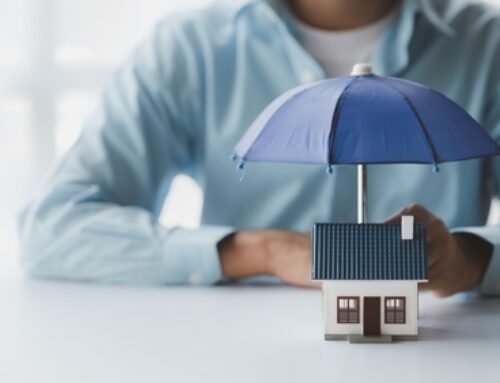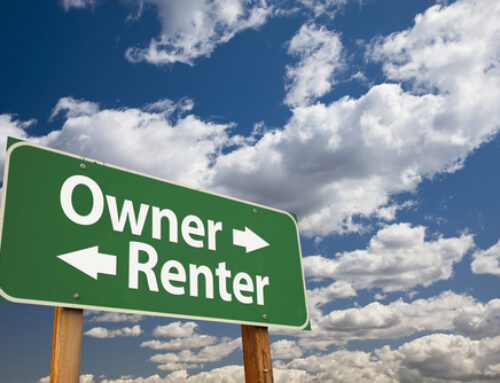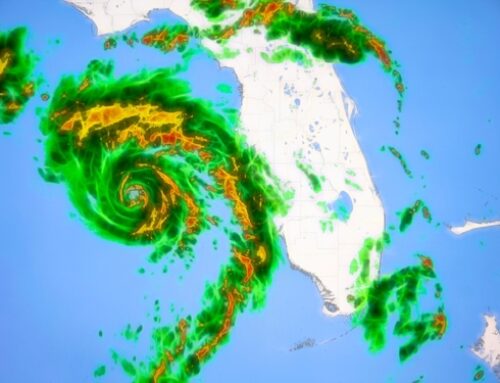Tropical Storm vs. Hurricane
Tropical storms and hurricanes are types of weather phenomena known as cyclones. Their differences are in the method of categorization. However, this categorization will impact how the claim is made on an insurance policy. A tropical storm is a cyclone consisting of wind speeds between 39 mph to 73 mph. A hurricane is a cyclone with wind speeds in excess of 74 mph. Hurricanes are classified by categories, and the higher the sustained wind speed, the higher the category classification.
Water Damage
Water damage can come as a result of a leaking roof, a pipe burst in your home, or even due to external factors such as storms or floods. The cause and extent of the water damage need to be clearly defined, as your insurance policy may not cover all types of water damage.
At the first sign of water damage, it is important to initiate any feasible emergency mitigations possible to your property. Consider exercising your option of hiring your own private expert to evaluate your water damage claim. Water or flood damage can leave homes vulnerable to even further damage, resulting in things such as weakened walls, doors, windows, appliances, and other types of structural damage. If theft, explosions, or fire, etc. occur as a result of water damage, these subsequent damages may be covered by your homeowner’s insurance even if the initial disaster is not.
Additional problems to be aware of that can come as a result of water damage, are mold and decay.
Theft & Vandalism
Being a victim of theft or vandalism can be an incredibly emotional experience. If you find that your property has been stolen or vandalized, contact your local authorities immediately. The majority of theft and vandalism cases are supported through the police reports filed at the time of the incident. It is crucial that authorities are contacted in the event of theft or vandalism
The majority of theft and/or vandalism cases are covered under your homeowner’s insurance policy. It is up to you, the policyholder, to make sure that the authorities have all the necessary and accurate information pertaining to your theft and/or vandalism claim. Should you later discover further theft or vandalism than what was originally reported, contact the authorities, as well as your insurance provider, and inform them immediately of the new findings.
– Theft
One of the biggest issues with theft cases is whether or not the individual actually owned the said item in question. Proper inventory of your belongings is always highly recommended. In the instance that this, unfortunately, wasn’t done prior to the theft, other items such as pictures or credit card statements could possibly suffice in proving ownership.
– Vandalism
Vandalism can occur to anyone at any time. One of the first thoughts that enter your mind upon realizing you are a victim of vandalism is, am I covered for this? Most damages and losses incurred from an act of vandalism are covered within a standard commercial property and homeowner’s insurance policies, but exceptions can occur.
Fire
At CLO, our Property Damage Attorneys understand the tumultuous aftershock that a fire can cause. From clothing to appliances to irreplaceable memories, all can potentially be lost in a fire. The stress only increases when a valid insurance claim is denied. As a policyholder who has diligently paid costly insurance premiums with the expectation of coverage, this can be life-altering.
CLO knows the catastrophic fallout that a fire can cause. Personal items such as clothing, furniture, or family heirlooms all can potentially be damaged or ruined entirely in a fire.
Some common reasons for denying fire insurance claims can include:
- The allegation of arson
- Valuation differences
- A violation in terms of the insurance policy conditions
- Fraudulent accusations/charges
– Smoke Damage
Smoke damage resulting from a fire is a cause for serious concern. Most often, smoke damage is covered peril under your homeowner’s insurance policy, but disputes are likely to arise. Smoke can cause damage to your property in a mere matter of moments.
Smoke is a cause for concern in terms of your health. The greatest danger is from the fine particles that make up smoke as a result of a fire. These complex particles can lodge themselves into your skin, eyes or respiratory system and create a multitude of health issues. If you have any pre-existing conditions, particularly heart or lung, you may be more susceptible. Children and older adults are generally at a higher risk.
– Partial Loss
If the property is not completely destroyed, policyholders may face a partial loss situation, with the probability of hidden damage. Hidden damage can include a wide variety of things including any inadequate or improper repair or cleaning methods, smoke and/or ash remnants, diminished air quality, or air duct destruction.
A common issue in partial loss cases is a delay of insurance companies, as some insurance companies may consider a partial loss a low priority. Any loss, of any size, is of the utmost importance and should be investigated immediately.
– Total Loss
Ultimately, it is the insurance company that declares a piece of property a total loss. A compelling sign that points to your property being a total loss is significant structural damage. If the core components of the property are compromised, then the property may be considered a total loss. Bear in mind that in addition to the adjuster assigned by the insurance company. you reserve the right to immediately hire an attorney of your choosing to assess the damage to your property. At CLO we are Attorney Adjusters!
Art
It is important to protect your fine art against loss or damage. Having your works of art professionally appraised is absolutely necessary for adequate coverage.
Stolen, damaged, or destroyed art is cause for an insurance claim. If the art has been damaged and not lost or destroyed, a qualified fine art conservator can assess the current condition of the piece.
If you have even a piece or two of art you treasure, you should evaluate if you have adequate insurance. It cannot be assumed that because you have insurance on your home, condo, or business that your artwork will be paid in the event of the loss. Many policies have limitations or exclusions
Bad Faith
Insurance bad faith can include situations when insurance companies:
- Fail to promptly and thoroughly investigate a claim
- Deny coverage based upon an unreasonable interpretation of the policy language
- Deny coverage on unreasonable or “pretextual” grounds
- Purposely delay or stall payments
- Refuse to pay the full value of the claim
If your property was damaged during a tropical storm, hurricane, or other severe weather event or if you have roof damage, roof leak, pipe burst, plumbing backup, water damage, wind damage, mold, smoke-fire damage, lightning, hail, flood, theft, vandalism, or construction defects the Property Damage Attorneys at CLO will fight on your behalf to see that YOU get the full benefits YOU are entitled to under your insurance policy. Contact Us Today for Assistance visit www.consumerlawoffice.com or call: 305-940-0924






